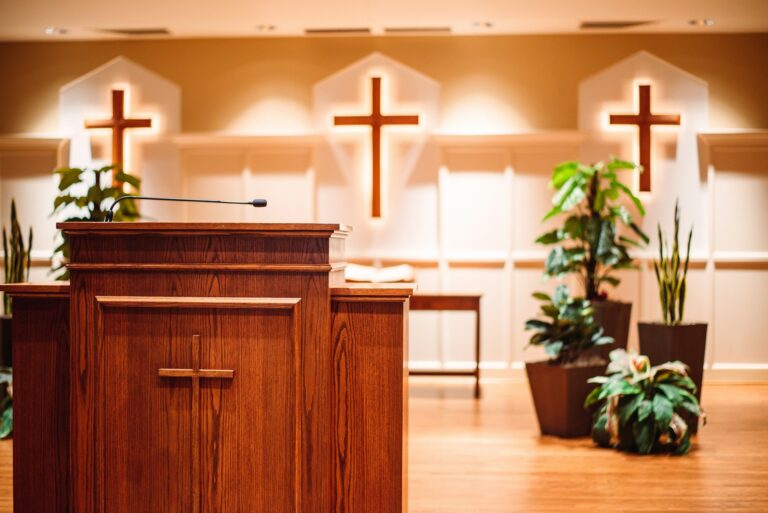If you’re a pastor, have you thought of having a retreat day with your elders? Likely it’s because you see the need to develop camaraderie, common vision, and to simply take a step back from the ministry of the church and evaluate together.
For all of these reasons, a retreat can be a good idea. Here are six suggestions for putting on an elders retreat.
Get Offsite
You could have your retreat at the church building to save money, but that doesn’t give you the separation from the workplace that you need to gain perspective. You can find a conference centre, camp, or some other purpose built place for corporate retreats. Or you can find someone in your congregation who has a nice home where you can occupy their living space for a day. In the past our elders have met in the mountain home of one of the staff pastors. This year we met in a rented board room on the 25th floor of an office tower overlooking the lost city. It doesn’t have to be expensive, just somewhere that will give you a comfortable change of setting.
Get Structured
Now your gag reflex might kick in when you hear the word ‘structure’ connected to the word ‘retreat’. But if it’s to be a retreat, you need to have enough structure so that no one has to make decisions. Some of the weight of ministry leadership is in the constant decision making. So to have most of the simplest decisions made for you helps you to relax. This also includes how many breaks you take through your retreat day.
There are few terrors like being trapped in an endless meeting.
Pastors are talkers and it can be easy to let open-ended discussions continue to exhaustion. Setting limits on chinwags and planning lots of bathroom breaks keeps everyone relaxed. Write up the itinerary and try to stick to it. There are few terrors like being trapped in an endless meeting.
Get Focused
You may have a retreat that is oriented to planning and scheduling, but if pastors are committed to the shepherding care of the flock, then the retreat should have a focus on godliness. This means that no matter what, the Word and prayer should be prominent. At our retreats, we generally read through a large portion of Scripture together, such as one of Paul’s letters or chapters 14-17 in John’s Gospel.
Then we pray out of the meditation on each chapter. We give ourselves ample time, but we also set a reasonable limit. This lets us meditate on God’s Word together and pray together about the revealed concerns which God has for us. This helps to get everyone spiritually focused. And while you’re at it, consider fasting through your retreat day. By fasting from breakfast and lunch your elders are intentionally separating themselves to seek the Lord.
Get Stretched
One way to build camaraderie among your elders is to learn together. This is especially true for some lay elders who have not had the common experience of seminary studies like the staffers. Having an outside speaker address all of your elders together lets them learn collectively. Maybe it’s a hot button issue in the culture or unpacking a key doctrinal point, but the idea is that you are all being stretched together.
How do you do this? Maybe you don’t have the budget to fly in a seminary prof but you can find a subject matter expert in your town or city. For our elders retreat we used video conferencing as a simple, inexpensive way to bring teaching to our board. We had a doctoral student speak on ‘Piety in the Psalms’, another recent PhD grad speak on ‘George Whitefield’s Preaching’, and a third doctoral student discuss productivity hacks for biblical research.
With talks of 40 minutes each with 10-15 minutes for Q&A, we were able to make our retreat into a mini-conference of sorts. The different speakers and topics gave variety to our elders retreat without costing lots of money. It also gave a chance for our elders to learn from godly seminarians and young profs. It was a taste of seminary even for those who had never gone.
Get Perspective
Over the years our elder retreats tended to have more and more planning in them. It became almost the drip-pan that caught all of the ‘someday’ discussions we wanted to have. This had to change. What I learned was that we needed planning, but it needed to be mostly big picture, getting perspective type of plans. If we tried to nail down details it felt exhausting. Rather if we had open discussions about general directions for the future we gained a sense of where the church is at and where it’s going.
Getting a bit of perspective gave us confidence in what God was doing and could do. By not being too fussy about dates and details we came away refreshed and encouraged by the discussion.
Get Social
If it’s going to be a retreat, you should have some fun together. A simple way to do this is to conclude the day with a meal. Normally we like to end the retreat by going to a restaurant where all the elders will meet up with their wives. It can be rare to get both elders and wives together at one time when no one is busy doing ministry. So a social time with our spouses can be a welcome chance for getting to know one another, reviewing what is happening in our lives, sharing some laughs and bringing the retreat to a conclusion.
There are many things you may wish to add or subtract, but it can be helpful to have some type of retreat for the shepherds in your church. It doesn’t have to cost a lot; it only requires a bit of prayerful planning ahead of time. In this way you can lead others in the important pastoral discipline of getting refreshed and relaxed—together.
























